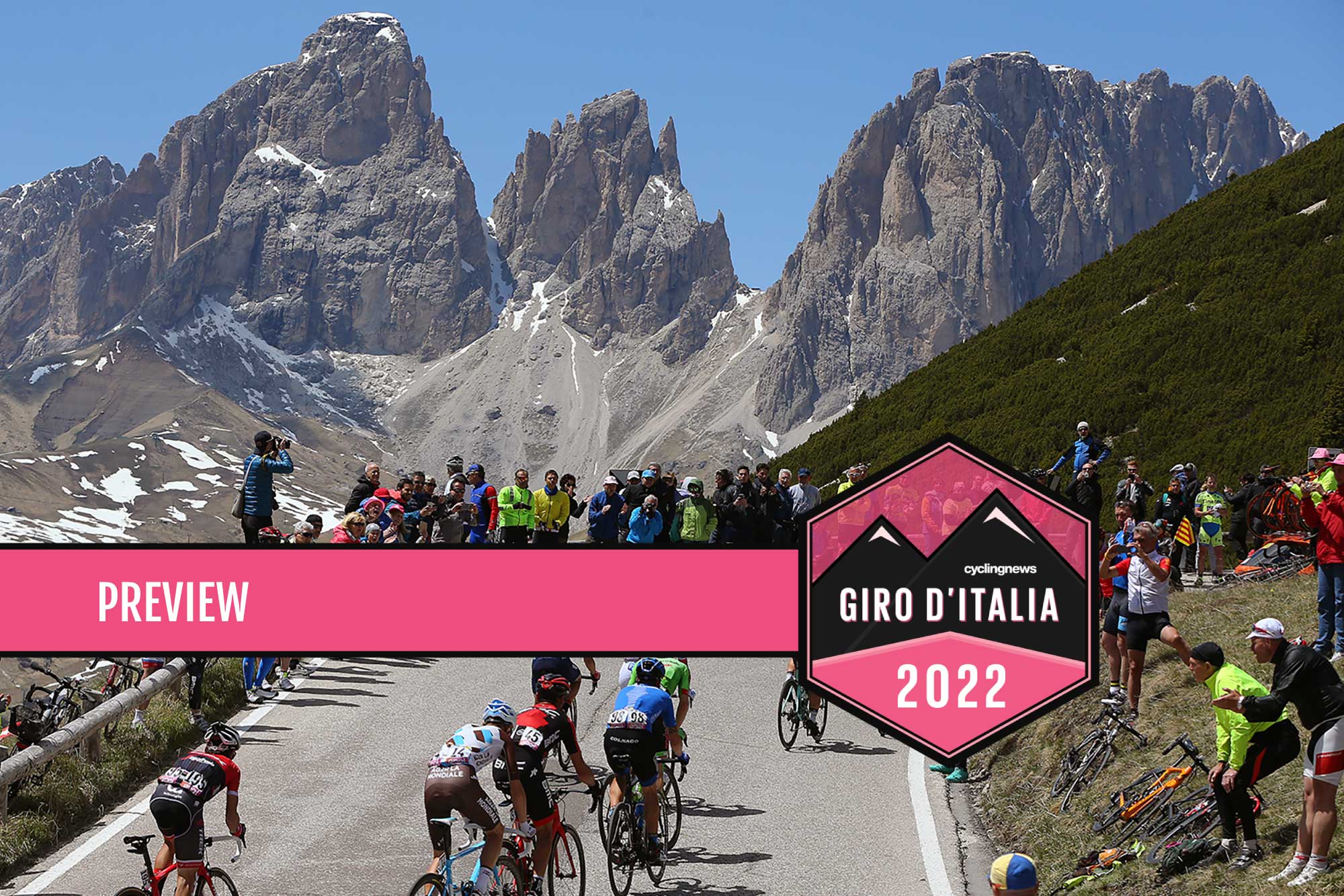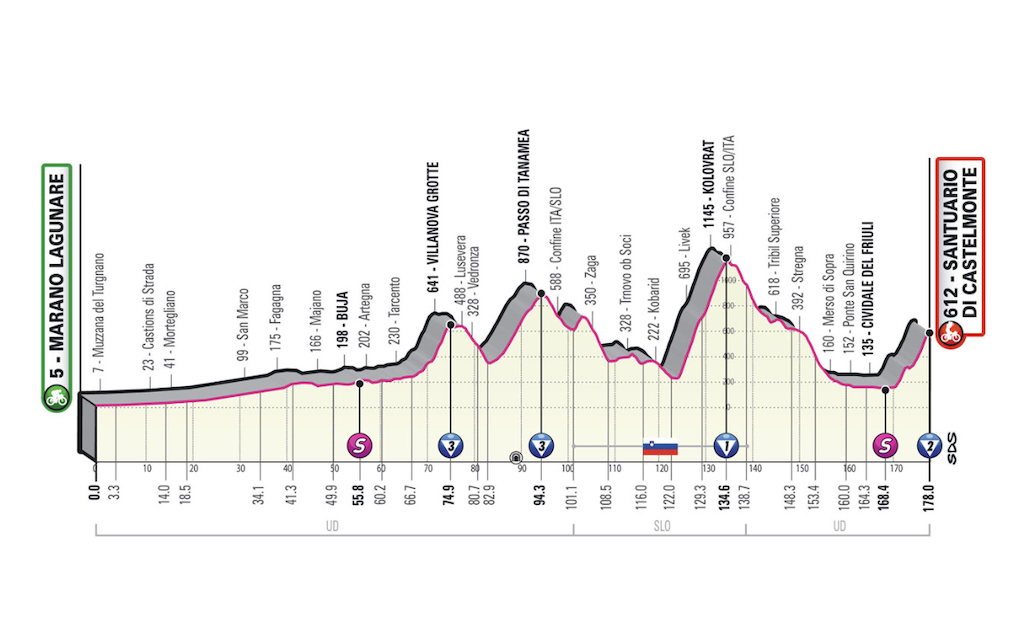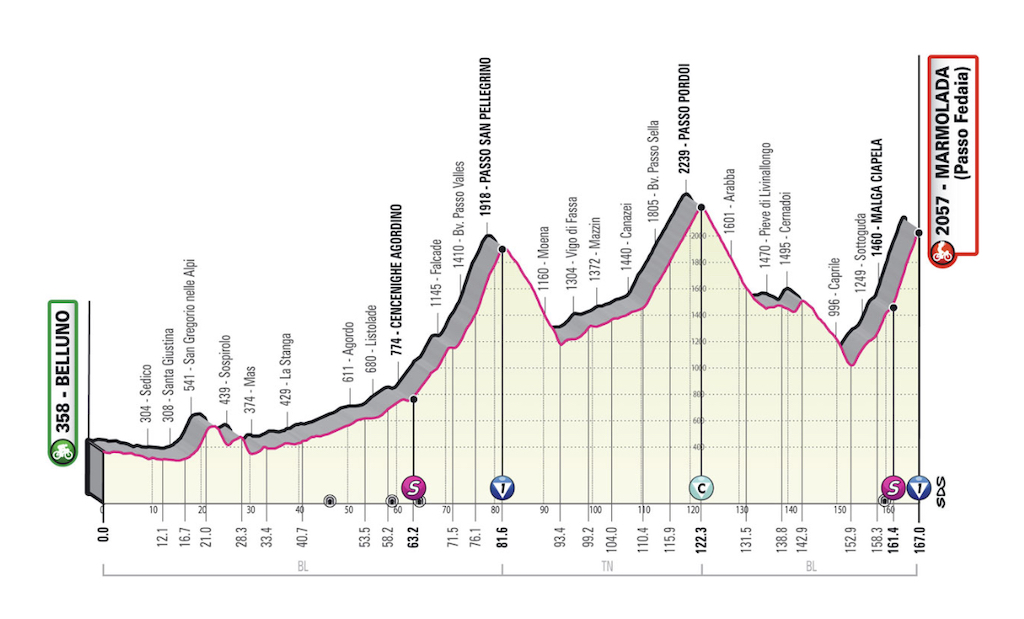Slovenian sortie a potential tiebreaker for Giro d'Italia – Preview
Fearsome climb of Kolovrat followed by uphill finale across border in Friuli

All week, Richard Carapaz (Ineos Grenadiers) has been talking about the small details, and when Jai Hindley (Bora-Hansgrohe) felt the unwelcome bump of rim against the road in the finale at Treviso, he must briefly have feared that the most minor, maddening issue had just cost him the entire Giro d'Italia.
Fortunately for Hindley, he was already inside the final 3km of the stage, and once his initial panic over his mechanical issue had subsided, he was able to roll gently towards the finish line, safe in the knowledge that his slender deficit atop the overall standings would be exactly as he had left it at the beginning of the day. After some 3,086km of racing, the gap remains at three seconds.
Not even misfortune, it seems, can separate Carapaz and Hindley, who have finished in the same time every day since stage 3 on the shores of Lake Balaton during the Giro's Hungarian overture. Since then, the race has scaled Mount Etna, crossed the Strait of Messina and traversed the entire length of the Peninsula, but Hindley and Carapaz haven't conceded a bike length to one another in all that time.
Only time bonuses have moved the dial for the past two weeks, even as the other challengers – most recently João Almeida (UAE Team Emirates), who abandoned on Thursday after a COVID-19 diagnosis – have fallen away in this slow-burning elimination race. Mikel Landa (Bahrain Victorious), third at 1:05, isn't out of the hunt yet either.
The final time trial in Verona is on hand to serve, as it did in Milan two years ago, as a penalty shoot-out in the event that Saturday's Dolomite tappone still cannot decide the Carapaz-Hindley duel.
But while the lofty summits of the Passo San Pellegrino, Passo Pordoi and Passo di Fedaia on stage 20 have long drawn the eye, the Giro's foray into Slovenia on Friday already has the potential to be a tiebreaker.
The route


The 178km leg from Marano Lagunare to Santuario di Castelmonte was certainly intriguing enough to persuade Bora-Hansgrohe directeur sportif Enrico Gasparotto to go and investigate the lie of the land in the depths of last winter. "I already did it in November, because it's in the area where I grew up," Gasparotto told Cyclingnews. "It's a day where you have to consider the forces left on the field and the remaining energy in the peloton."
The latest race content, interviews, features, reviews and expert buying guides, direct to your inbox!
The opening phase in Friuli is relatively gentle, even if the battle to enter the early break will be fraught considering the sheer volume of teams who risk leaving this Giro empty-handed. The first intermediate sprint is in Buja after 55km, and it would be a surprise if local favourite Alessandro De Marchi (Israel-Premier Tech) wasn't among those seeking to make an impression.
The terrain grows more rugged with the category 3 ascents of Villanova Grotte and the Passo di Tanamea, which brings the race out of Italy and into Slovenia.
"From the moment we cross the border, it starts to become a stage of movement, with some important difficulties," race director Mauro Vegni told BiciSport. This corner of the world was contested fiercely during the First World War, and the town of Kobarid is particularly evocative. Better known by its Italian name of Caporetto, it was the site of the Italian army's routing by Austro-Hungarian forces on the Isonzo Front in 1917.
The passage through Kobarid precedes the most arduous section of the Giro's sortie into Slovenia and one of the most demanding climbs of the entire race. The category 1 ascent of Kolovrat climbs for 10.3km at an average of 9.2% but those already gaudy statistics probably mask its true difficulty. Were it not for a kilometre-long plateau midway up, this climb's average gradient would be in double digits.
"It's tough," Gasparotto said. "It's a very demanding climb, and at the end of the Giro, even if it's a long way from the finish, it could cause damage."
The summit of Kolovrat is still 43km from the finish, but while Carapaz, Hindley and Mikel Landa (Bahrain Victorious) surely won't be tempted onto the offensive here, they will surely set their teams to work on the relentless slopes with a view to isolating one another ahead of the finale over the border.
In Turin on stage 14, after all, Bora-Hansgrohe tore the Giro apart with their forcing some 80km from the finish. Asked if his charges might take matters in hand in a similar way here, Gasparotto was coy.
"It's clear that I have a plan and I'll talk about it with the lads, but to go from there to putting it into action, you always have to consider the advantages and disadvantages of any plan," he said carefully.
The maglia rosa Carapaz, meanwhile, confirmed that he had not been to see the stage in person. "Personally, I don't know the climbs on Friday or Saturday," he said. "But as a team, we've looked at everything and studied it."
After descending back into Italy, the road rears up again at Cividale del Friuli with a little over 7km to go. The haul to the finish at Santuario di Castelmonte is 'only' 612m above sea level, but the second-category ascent should not be underestimated. The two-part climb averages 7.8%, but the gradient briefly kicks up to 14% with 4km to go, while there is another series of 12% ramps closer to the summit.
"I don't know if the GC men will have the strength or the desire to attack," former Italian national coach Davide Cassani told La Gazzetta dello Sport. "The last 5km of that climb to the finish are quite hard and could push some GC rider to put in a dig to gauge the leftover strength of his rivals."
In a Giro of such tight margins, perhaps it won't require a mammoth like the Marmolada to make the difference after all. Saturday's Dolomite tappone will already be on the minds of Carapaz, Hindley and Landa, but if the opportunity presents itself a day early, they surely won't pass it up.

Barry Ryan was Head of Features at Cyclingnews. He has covered professional cycling since 2010, reporting from the Tour de France, Giro d’Italia and events from Argentina to Japan. His writing has appeared in The Independent, Procycling and Cycling Plus. He is the author of The Ascent: Sean Kelly, Stephen Roche and the Rise of Irish Cycling’s Golden Generation, published by Gill Books.